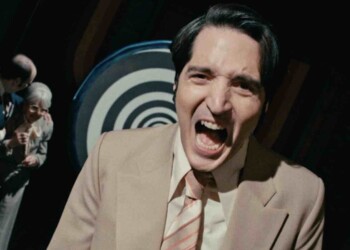Comic books are the land of unbridled ideas. The medium where the readership is small but open minded, thirsty for stories swollen with high concept. Comic books play on the remote ends of spectrums, qualifying their characters with terms like “God-like,” focusing on plot devises like time travel and horror and forming theses around artificial intelligence and multiverses.
It’s all about the mass of the idea, but all too often, creators can forget the genesis point of all ideas. A person.
Boy-1 elevates itself above other books not because it posits a grander sci-fi concept, but because it shows restraint in the way it features that concept. Choosing to place depth of character and a pragmatic view on science above pie in the sky sci-fi musings.
The idea of cloning being the next tier of human progression has already been explored in literature with great frequency and fervor. Boy-1 doesn’t do much to add to that tradition. It keeps its skeletal thought simple. After the cloning of two chimps goes better than expected, a corporation decides it is time to start cloning humans. A scientist named Jadas is tasked with heading this new project.
This basic summery shows nothing particularly novel. It is ground plowed to handles by countless other works of fiction. Boy-1 seems aware of this. There is a running awareness of real world pop culture throughout the book, acting as a nod to its audience. Reminding them that both it and its characters are aware of its dalliances into triteness.
It also seems aware of science fiction’s common folly when handling these sort of story notions, mainly, categorizing the pursuit of morally nuanced science as either “we should never have meddled in the affairs of the universe/played God/pushed things so far” or “There is no more canonization worthy cause than taping the next mile marker on mankind’s run down the timeline.”
Jadas pauses before initiating the human cloning process to dissect the moral intricacies of what he is about to do. The AI construct he is speaking with delivers a dry and simple view of science that becomes one of the thematic backbones of the story. Whether it is making cheese or building a rocket to the moon mankind pushes science forward, he doesn’t do it because it is a holy cause or because it is his duty to his species. He does it because humans have a natural forward momentum to them. They just progress. So, if Jadas chooses not to start the program, it doesn’t matter because someday someone else will. It’s just what humans do.
This simple statement paints Jadas’ eventual decision to start the cloning process in a different color. He doesn’t do it because he decided it was the right thing to do. He does it almost out of nihilism. If its going to happen, why not be the man standing at the spearhead?
It makes the book’s choice to then push the science to background make sense. Once the program launches Jadas loses interest, gaining a driftlessness. This great progressive moment that he is giving to mankind spawns no investment from him, instead it stirs something else.
The science the cloning process is based on was pioneered by Jadas’ father who went missing when Jadas was very young. The blossoming of that science into a tangible project causes Jadas to wonder again about his father’s fate.
This is the fulcrum of the narrative and it is what makes it a different kind of science fiction story. Rather than focusing on what cloning means to mankind, it focuses on what cloning means to Jadas. By moving from the broad to the personal, the story becomes something connective and different.
The pretentiousness is sucked out and an old previously threadbare plot becomes fresh. It’s no longer about a stage of existence we will never see and thereby have a hard time grasping in any concrete way. Instead, it is about identity. It’s about wondering where you came from. About having unanswered questions that have made your life systemically incomplete. Readers have never cloned themselves but they have felt these things.
Boy-1 drives a needle into the nucleus of an idea that other works of fiction have just fondled. It understands how to build a tether to its reader and how to pull on it. Never overly obligated to its genre Boy-1 is above all things, simply itself a smart, worldly and original example of how to do science fiction right.






